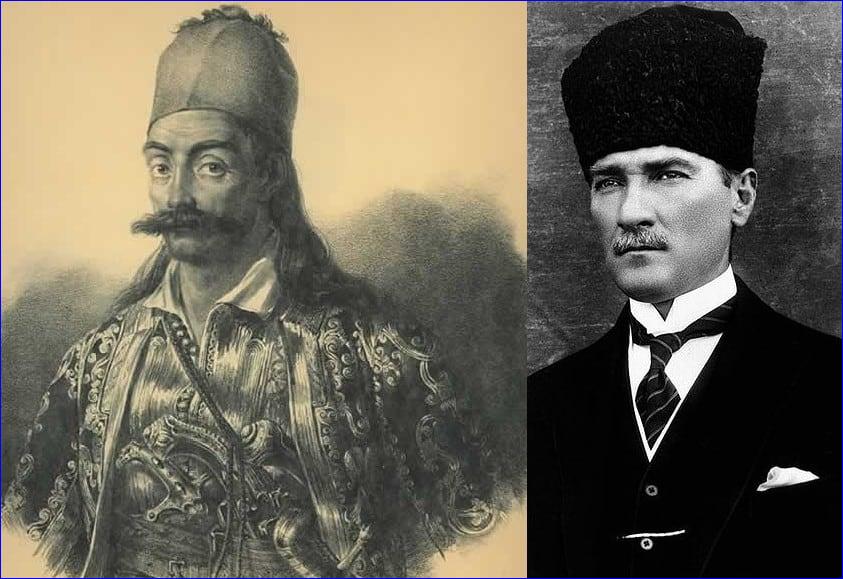


George Karaiskakis was born in 1780 in Mavromati in Central Greece. At the age of 15, Karaiskakis left his adoptive parents and became a bandit. Three years later, he fell into the hands of Ali Pasha of Ioannina, who, appreciating his strong character, hired him as his bodyguard. In the Court of Ioannina, he learned warfare, reading, and writing.
At the outbreak of the Greek War of Independence in 1821, it did not take long for him to break from Ali Pasha. On January 15, 1823, Karaiskakis scored his first major victory against the Turks at the Battle of Sovolakos. In the middle of 1823, he was promoted to general and became known for his fiery speeches that motivated and encouraged those under his command.
Related: The Assyrian Genocide
1826 he was appointed general of Roumeli, with full jurisdiction. His first action was to relieve the besieged of the Acropolis of Athens. On August 6, he defeated the Turks in Haidari and repeated his victory two days later.
Although seriously ill, he campaigned in Dombraina in October to cut off supplies to the besieged Kioutachis. He would clear the area and on November 24, 1826, would achieve a grand victory over the Turks in Arachova, in a multi-day battle demonstrating his strategic capabilities. For the Turks it was the second great disaster after Dervenakia.
He scored two great victories, in Keratsini (March 4) and in the monastery of Agios Spyridon (April 13).
On this day in 1827, he succumbed to a bullet shot he received while fighting in the Battle of Phaleron. As he had wished, he was buried at the church of Saint Dimitrios on the island of Salamis. He became a known figure in the struggle for Greece's independence and is immortalised, most famously as the name of the stadium that Olympiakos FC plays out of.
However, on the other side of the Aegean in Turkey, another figure is also celebrated on this day. Today, Turkey celebrates the 100th anniversary of the foundation of its Grand National Assembly or parliament, established by "founding father," Mustafa Kemal Atatürk ("Father Turk"), an Albanian Jew born in Thessaloniki. His father died when he was young and his mother worked in a brothel -- but despite this early setback, he came to be known as one of the biggest mass murderers in recent history.
While Turkey celebrates the 100th year of its parliament and remember Atatürk for this, the rest of the world remembers his responsibility for killing millions of Greeks, Armenians and Assyrians to create a "Turkey for the Turks." Those who were not exterminated or expelled by Atatürk during the First World War and up to 1923, were then violently "Turkified" and Islamised to become Turks.
Atatürk with humble beginnings rose through the military ranks and was the main factor in preventing the complete collapse of the Ottoman Empire, or what later came to be known as the Turkish Republic, during World War One and the following Greco-Turkish War. However, the violent mass extermination of non-Muslim populations in Turkey is not well known in Turkey as it is omitted from the education system, while those who speak about it are arrested.
The push for Turkification was so strong that for over 50 years, schoolchildren had to recite "Ne mutlu Türküm diyene!" or "How happy is the one who says I am a Turk!"
The veil of Turkey's genocide crime is now being exposed in a new documentary, as reported by Greek City Times.

or register to post a comment.